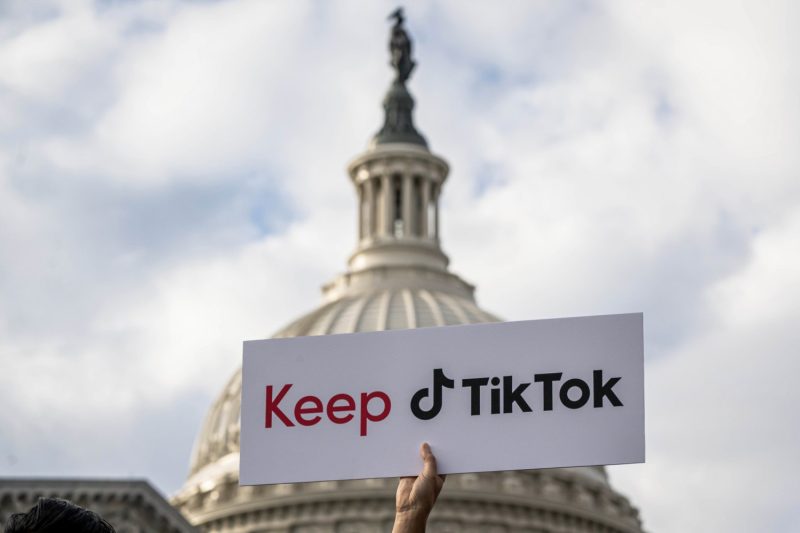The recent decision by Congress to approve a ban on TikTok, a popular social media platform, has raised numerous questions about the implementation process. The primary reason behind the ban is national security concerns. However, there are several reasons why this ban might not be practical to enforce in the near future.
Firstly, the timeline and methodology of enforcing such a ban are murky at best. Bans on social media platforms can be complex and time-consuming to implement. Additionally, technical loopholes and alternate access points can make the enforcement of such bans challenging.
Various countries have tried to enforce similar bans in the past. For instance, China’s extensive internet censorship practices, known as the Great Firewall, is considered one of the most comprehensive and technologically advanced crackdowns on internet freedom. However, even with such extreme measures, citizens often find ways to bypass restrictions using VPNs or proxies. Implementing an effective and all-encompassing ban then, especially in a country that values freedom of speech and unrestricted access to information, would undoubtedly prove challenging and potentially infringe upon these values.
Secondly, TikTok as an application has an extensive global reach through its parent company, ByteDance, which complicates its termination. Even if the ban is successful in the United States, the global nature of the Internet means that content from the platform will still be accessible indirectly. This creates a paradox; banning the app may serve to hinder monitoring efforts by U.S. authorities, while the content and perceived threats ostensibly remain accessible.
In addition to enforcement and control challenges, there are legal considerations to contemplate. The First Amendment protects freedom of speech in America, and a blanket ban on a social media platform could be viewed as a violation of this fundamental right. Undoubtedly, any attempt to enforce such a ban will be met with legal challenges that could delay its actual implementation for years.
Another vital consideration is the economic impact. TikTok employs thousands of people in the U.S., and a ban could lead to significant job losses. Additionally, TikTok is a major platform for advertisements, with U.S. marketers spending nearly half a billion dollars on the platform in 2020. Banning such a platform will have a noticeable economic fallout.
Furthermore, there is the diplomatic angle. The trade relations between China and the U.S. are already tense, and such a move can exacerbate the situation. ByteDance, TikTok’s parent company, is a major Chinese corporation and such a direct action against it can lead to retaliatory measures, launching a cycle of technology-focused sanctions.
Finally, addressing any potential national security concerns associated with TikTok would likely require a more nuanced approach than simply banning the platform. This could involve stricter regulations regarding data privacy and control, closer scrutiny of TikTok’s operations by authorities, and perhaps even structural changes to the company’s operations in the U.S.
In conclusion, while the proposed ban on TikTok is a significant move from Congress, numerous complexities and potential roadblocks suggest that it may be several years before such a ban could effectively be put into place. In the meantime, concerns around national security, data privacy, and international relations remain key elements of this ongoing issue.
